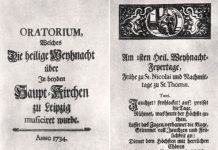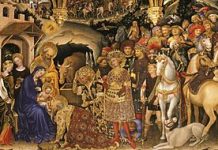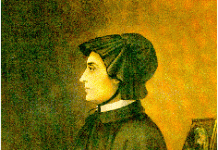Hail, holy Mother! The Child to whom you gave birth is the King of Heaven and earth forever.
Christmas is a Solemnity with an Octave. This means that for eight days the Sacred Liturgy celebrates the Mystery of Christmas. The last day of the Octave is kept as the Solemnity of Mary the Mother of God, which celebrates the divine motherhood of the Blessed Virgin Mary. It is the oldest of all Marian feasts. It celebrates not only our Lady’s unique role in the Mystery of the Incarnation but also sheds light on our own efforts to live the Mystery of Christ along the path of Christian discipleship; the path of devout humility. Devotion to our Lady has always had a privileged place in popular piety. There are many titles by which we honour our Lady and all of these express in some manner her maternal love for God’s children and our love for her who is our Mother in the order of grace. These titles by which we invoke our Lady are a wonderful summary of her place in the unfolding Mystery of the Incarnation. They are found in the Litany of the Blessed Virgin Mary, known also the Litany of Loreto. The Solemnity of Mary Mother of God honours her as Theotokos, for she gave birth to the Son of God. Her unique role in the Mystery of the Incarnation as Mother of the Messiah, Mother of Christ, and Mother of our Saviour, was not merely functional. At Pentecost, when the Holy Spirit came upon her a second time, Mary became the Mother of the Mystical Body of Christ and so we invoke her as Mother of the Church.
In the course of this week, the Octave of Christmas, we celebrate a number of very important Feasts, commemorating both events and figures in salvation history. These liturgical celebrations clearly illustrate to us that “the birth of Jesus at Bethlehem is not an event which can be consigned to the past. The whole of human history in fact stands in reference to Him: our own time and the future of the world are illumined by His presence” (Incarnationis Mysterium, 1). In the sacred liturgy we celebrate not only the events themselves of salvation history but also the men and women and children redeemed by the Saviour who have lived and proclaimed this Mystery in a manner worthy of imitation. In all of these events and figures, the presence of our Lady is clearly discernible for she is both Mother of the Redeemer and Mother of the Redeemed. And so we invoke her as Help of Christians and Queen of All Saints.
The day after Christmas, 26 December, we celebrate the Feast of St. Stephen, the First Martyr. St. Stephen was a deacon whose martyrdom is recorded in the Acts of the Apostles. He died praying for his persecutors, and in so doing he establishes a principle by which the Church herself exercises the proclamation of the Gospel. St. Fulgentius of Ruspe says of St. Stephen that “he longed to gain by prayer those whom he could not convert by admonition” (Liturgy of the Hours, Vol. 1, p. 1257). He is the first of countless martyrs: men, women, and children who through the ages have witnessed to the Truth by the shedding of their blood. Ours too is an age of martyrs and in many countries of the Middle East a persecution is raging against ancient Christian communities whose origins date back to biblical times. How are we to understand this opposition to Christianity then and now? St. John the Evangelist provides us with a key to understand the reality of martyrdom. He writes: “And this is the judgment, that the light has come into the world, and men loved darkness rather than light, because their deeds were evil” (Jn 3:19). God who in His Son has revealed to us the truth about Himself also reveals to us the truth about man, created in God’s own image and likeness. Christians proclaim the equality of all men and women. This is not so with all other faiths and creeds. We affirm and uphold the sanctity of life from conception to natural death. This too is a belief that is not shared by all. Like our brothers and sisters who are being persecuted in the Middle East, Africa, Asia and elsewhere, we too must witness to the truth of the sanctity of life and the primacy of conscience.
And so we invoke our Lady as Queen of Martyrs and Powerful Virgin. Martyrdom is an ever-present reality. Indeed, from the very beginning of our Lord’s earthly life the sword of martyrdom has been threateningly brandished against His followers as it was against the Holy Innocents, commemorated on 28 December. They were the first infants to witness to Christ and they died not only for Christ but also in the place of Christ for Herod was personally threatened by the Messiah’s Birth and in his rage he ordered that all male children below the age of two be killed. Thus the words of the Prophet Jeremiah were fulfilled: “In Ramah is heard the sound of moaning, and bitter weeping! Rachel mourns her children; she refuses to be consoled because her children are no more” (31:15). There is another, ongoing slaughter of innocents in our own day. It is the holocaust of abortion which continues unabated even in our own country. The root cause of this slaughter is a contraceptive mentality that refuses to recognize human life as unique and of inestimable value, for every human being is created in the image and likeness of God. In our struggle against this evil we invoke the intercession of our Lady, the Virgin Most Powerful, and the Tower of David to strengthen us in our struggle against the culture of death.
The Christmas Octave also includes the celebration of the Feast of St. John the Evangelist, the Beloved Disciple to whom our Lord entrusted our Blessed Lady. In the Divine Office we pray: “To the virgin John, Christ, dying on the Cross, entrusted His Virgin Mother.” John received our Lady into his home. He received her into the intimacy of his life and made a place for her in his heart. But our Lord also gave John to Mary for on the Cross he also said, “Woman, behold, your son!” (Jn 19:26) What condition was John in at that moment as he saw the Master dying on the Cross? This young man had placed all his hope in Jesus, and suddenly it seemed that everything was over. His feeling of dejection must have been unfathomable. So Jesus entrusted him to Mary. And what can be said of our Lady? In the face of her own grief, she now had a broken man on her hands. She became his mother. Over those three days that Jesus lay in the tomb she comforted John. This describes how we often turn to our Lady: broken, discouraged, weak. And in the exercise of her spiritual motherhood, our Lady consoles us with a mother’s love. For this reason we call upon her a Comforter of the Afflicted and Loving Virgin.
The Christmas Octave also commemorates the English Bishop, St. Thomas Beckett, murdered in his own cathedral for his vigorous defence of the Church’s rights against the interference of the state in her mission to teach and sanctify God’s people. St. Thomas serves as a model for bishops and priests of every time and place. “Give to Caesar what belongs to Caesar and to God what belongs to God” (Mt 22:21). The separation of Church and state is essential for the Church to be faithful to the mandate to preach the Gospel to all nations and to lead her children in freedom along the path of holiness. In a letter, St. Thomas wrote these words: “Remember then how our fathers worked out their salvation; remember the sufferings through which the Church has grown, and the storms the ship of Peter has weathered because it has Christ on board. Remember how the crown was attained by those whose sufferings gave new radiance to their faith. The whole company of saints bears witness to the unfailing truth that without real effort no one wins the crown” (L.H. Vol., p.1281). In the course of the ages our Lady has sustained the children of the Church with her own prayer and example and so we invoke her as Mother of the Church, Queen of Confessors, and Queen of Peace.
Lastly, the Christmas Octave celebrates the Feast of the Holy Family, which is the pattern for our family life and life in community. It is in the family that we learn the lessons of charity. Rightly do we recognize the family as the basic unit of society. Because of this, it is essential that we do all that we can to strengthen family life for the stability and future of our society depend upon the health of our families. The sad effects of the moral revolution of the late 60s and the dictatorship of relativism are most acutely felt by families. Civil authorities have redefined the family by redefining marriage and so we invoke the intercession of our Lady, Queen of the Family and of St. Joseph her Spouse, Mainstay of Families, to intercede for us and to protect the children entrusted to us by God the Father.
On the last day of the Christmas Octave, though the first of the New Year, we do well to place ourselves under the loving protection of the Mother of God. By honouring her, Jesus her Son is rightly known, loved, and glorified, and His commandments are observed (Lumen Gentium, 66). When our Lady is honoured, Jesus is rightly known as true God and true Man. Her presence guarantees that we grasp the truth of the Incarnation. “And the Word became flesh and dwelt among us, full of grace and truth; we have beheld his glory, glory as of the only Son from the Father” (Jn 1:14). The Son of God became like us in every way so that He could show us the fullness of His mercy. God “is rich in mercy” (Eph 2:4) and “by his great mercy we have been born anew to a living hope” (1 Pet 1:3). And so we can rightly say that the celebration of the Lord’s birth also celebrates the birth of the Christian people. Just as history is illumined by the presence of God’s Son, salvation history is illumined by the loving presence of the Mother of God, the Mother of Divine Grace. May our Lady, the Mother of God and our Mother, also in the order of grace be for us a model of discipleship. May she nurture in each one of us the desire to be pleasing to God alone and to seek holiness above all else.
Mother most amiable, obtain for us the grace to be perfect in charity for this is the essence of holiness. Mother most pure, Mary, conceived without sin, obtain also for us the grace to seek God with pure and undivided hearts. May we learn from you who are both our Mother and our Queen, to understand above all else that holiness is the wholehearted openness to the love of God. Virgin most faithful, Humble Handmaid of the Lord, may we learn from you to serve the Mystery of the Incarnation as this Mystery unfolds in the intimacy of our own hearts and in the life of the world today. Mother of the Word Incarnate, Queen of the Most Holy Rosary, hear and answer us.











